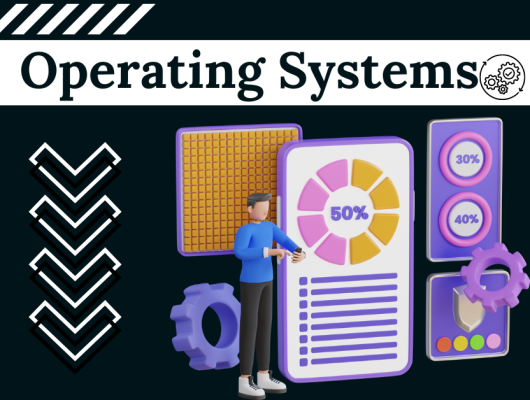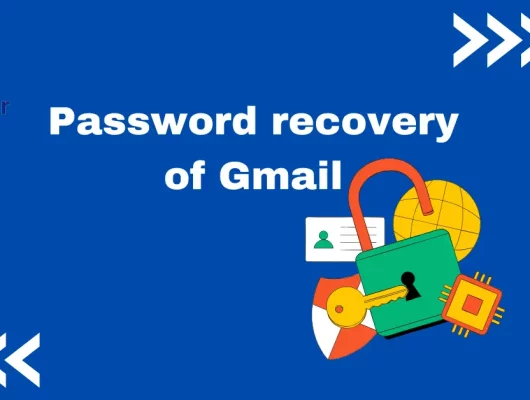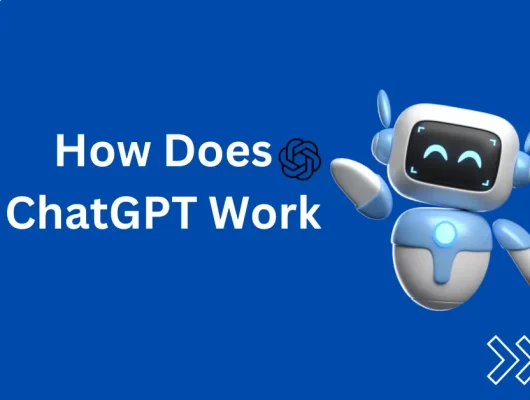Google’s E-A-T concept is pivotal in evaluating website quality. It prioritizes the experience and expertise of individuals, emphasizing the real-life experience and personal knowledge they bring to a particular topic.
This degree of experience is a vital part of the authoritativeness and trustworthiness that Google seeks, as outlined in the Google Quality Rater Guidelines. The E-E-A-T framework introduced in 2014 plays a crucial role in assessing the credibility and quality of a website’s content.
The Double E-A-T is a valuable metric that can directly influence the rankings of a website. It involves not only the authoritativeness of the content but also considers the extra ‘E’—the experience of the content creator. This holistic approach to evaluating content quality is essential for success in Google searches. For blogs aiming to improve their SEO, it is crucial to explore the significance of EEAT and adjust SEO content optimization strategies accordingly.
Since its introduction in 2014, the E-A-T guidelines from Google have shaped how we evaluate the quality and credibility of a website’s content. The emphasis on context in assessing the authoritativeness and trustworthiness of information is crucial. By understanding and implementing these guidelines, websites can enhance their E-E-A-T and, in turn, improve their standing in Google searches.
Expertise, Authoritativeness, and Trustworthiness (E-A-T) are crucial for SEO. Effective link-building techniques enhance a website’s E-A-T by demonstrating credibility, fostering authority, and establishing trust through high-quality, relevant backlinks, thereby improving search engine rankings and user confidence.
What Is E-E-A-T?
Understanding the E-E-A-T Framework
Dive into the components of the Google EEAT framework with a quick history lesson. These are a set of guidelines used by both Search Quality Raters and Google’s official quality assurance team to evaluate website content.
The Origin of E-E-A-T
Explore the origin of the E-A-T framework within Google’s Quality Rater Guidelines. In 2014, it gained attention, especially with the SEO community, and further garnered focus with the Medic update in August 2018.
Impact of E-E-A-T on SEO
Witness the consequence of the Medic update as websites failing to meet the new criteria experienced a decline in search rankings. This update, part of the Google algorithm, emphasized E-A-T factors and page quality for a better user experience in health-related search results.
Search Quality Raters
Google’s Search Quality Raters play a crucial role in maintaining the quality of search results. Tasked with evaluating content based on EEAT guidelines, they assess the relevance, accuracy, and usefulness of web pages. Their feedback provides valuable insights to improve Google’s ranking algorithms.
The work of quality raters has a direct impact on site rankings. Their meticulous evaluations and detailed feedback not only inform the site owners but also influence Google’s ranking algorithms. This impact is particularly significant in the realm of SEO, as the quality raters directly contribute to shaping user search results.
It’s essential to note that the guidelines followed by Search Quality Raters are instrumental in maintaining the integrity of the search engine. The continuous loop of assessments, feedback, and algorithmic improvements underscores their importance in ensuring that Google users receive the highest quality and most relevant search results.
Google Quality Rater Guidelines
Understanding Search Quality Raters
In the 176-page document, Google outlines the role of human quality raters in evaluating the search engine results page (SERP) quality. These Search Quality Raters play a crucial role in providing judgments that aim to improve Google’s search algorithm. While they don’t directly influence rankings, their assessments contribute to refining the overall search experience.
Decoding Google EEAT Guidelines
SEO experts often refer to Google’s EEAT guidelines to grasp the signals the search engine is trying to measure. These guidelines comprehensively cover various aspects of website evaluation, including determining authorship, researching content creators, rating the quality of pages, and identifying high E-E-A-T requirements for specific types of domains/pages, especially on YMYL (Your Money Your Life) sites.
Additionally, the guidelines involve comparing mobile and desktop experiences, recognizing potential user harm, and scoring domains/pages on a rating slider from “Fully Meets User Needs” to “Fails to Meet User Needs.”
The Significance of EEAT in Google’s Rankings
Google places a significant emphasis on websites demonstrating experience, expertise, authority, and trust (EEAT). This prioritization ensures that users are directed to trustworthy sources of information, thereby safeguarding them from scams, misinformation, and potentially harmful content.
By understanding and aligning with Google’s EEAT guidelines, websites can contribute to a safer online environment and enhance their chances of being prominently featured in search results.
Understanding The Components Of E-E-A-T
Google’s E-A-T (Expertise, Authoritativeness, Trustworthiness) standards measure the quality of web content, emphasizing the importance of high-quality pages that effectively communicate expertise. To meet SEO standards, it’s essential to examine how content uses keywords and explores certain topics. Regular content updates ensure that a website maintains its authority, providing users with a positive online experience.

Experience
In the era of generative artificial intelligence, Google has become a great example of harnessing the power of algorithms to enhance user experiences. When evaluating the content quality of tax preparation software, for instance, real-life experiences shared by individuals in forums and on the Google Search Central Blog are given more weight than assumptions made by algorithms alone.
These firsthand reviews and opinions offer a breath of fresh air in navigating the nuances and complexities of correctly filling out tax returns, providing an authentic perspective that complements the information produced by experts in the field of accounting. This approach aligns with Google Quality Rater Guidelines, emphasizing the significance of authentic experiences over purely algorithmic assessments.
Demonstrating Experience in Your Content
Within the landscape of SEO, the critical factors of Expertise, Authority, and Trustworthiness (E-A-T) wield substantial impact. Abiding by search engine optimization guidelines, your content and services emerge as key players in cultivating consumer trust and driving user engagement, thereby optimizing conversions. When constructing pages on your website, the “About Us” or “Meet the Team” section becomes a prime space to showcase your company’s experience, qualifications, and credentials.
A meticulously organized and perceived page not only bolsters consumer trust but also propels conversion rates higher. It aligns with the Stanford Web Credibility guidelines, which stress that a credible organization armed with compelling content and valuable services not only attracts but also retains users, ultimately leading to higher conversion rates.
Expertise
Google emphasizes the importance of expertise in its content update guidelines. To ensure quality, they recommend consulting subject matter experts who possess the necessary experience in the given field.
Experience vs. Expertise
SEO success relies on a combination of expertise, knowledge, and a deep understanding of the subject matter. Academic qualifications and professional certifications certainly contribute, but hands-on involvement and practical experience play a crucial role.
Through on-the-job learning, trial and error, and continuous observation of industry trends, one can attain a high level of skill in this dynamic field. The E-A-T (Expertise, Authoritativeness, Trustworthiness) principle emphasizes the importance of showcasing one’s genuine expertise to excel in SEO-related activities.
Expertise for Non-YMYL Topics
As a lifestyle travel blogger with both formal qualifications in European studies and extensive life experience as a seasoned traveler, I am not only an expert in the field of travel but also someone who brings everyday expertise to my audience. Unlike some who might penalize the lack of formal training or official certification, I believe that true knowledge is gained through years of hands-on adventures and insights.
My blog, prominently featured on Google’s SERP with a captivating snippet, reflects the perfect blend of an American traveler’s experiences and the expert guidance of a travel expert. On my website’s About page, I step beyond mere formal demonstrations of knowledge and share the rich overlap between experience and expertise in the diverse field of travel.
Whether it’s providing a comprehensive Europe backpacking checklist or delving into non-YMYL topics, my aim is to showcase the value of learning from both the classroom and the world, proving that one can be an expert even in a non-YMYL topic like travel without a traditional educational background.
Demonstrating Expertise in Your Content
When researching a topic on Google, it’s crucial to gauge the credibility of a website by examining clear sources and authoritative content. Look for evidence of the author’s expertise through a descriptive bio, relevant qualifications, and links to social media profiles. Establishing the author’s background information not only helps in demonstrating their expertise but also in building trust with the audience.
A website with these elements and a well-constructed Persona schema not only deserves positive engagement but also higher ranking through the search algorithm, signaling Google that it is an authoritative source. Always be cautious of factual errors and ensure that information can be quickly verified from credible and authoritative sources.
Authoritativeness
Establishing oneself as an industry leader in today’s digital landscape goes beyond a mere online presence. To truly gain the trust of your audience and be widely recognized by industry experts and influencers, it is crucial to follow helpful content update guidelines.
Achieving this involves three key strategies: adopting a comprehensive content structure, strategically acquiring backlinks from authoritative sites, and systematically building a robust personal brand and digital profile focused on a specific topic of specific expertise.
Demonstrating authority in a particular field requires acknowledging that a website’s reputation is relative to its specific expertise. For instance, in the medical industry, a website like WebMD is considered highly authoritative due to its knowledge and consistent ability to publish content on medical topics and technology.
Thus, anyone aiming to be recognized as an authority on a subject matter must emulate the approach of industry giants and focus on building a reputation aligned with the standards set by the most respected players in the field.
Demonstrating Authority in Your Content
Building authority involves crafting a robust content strategy that caters to the specific needs of your target audience. Delivering answers in a way that conveys value is key, with a focus on E-A-T (Expertise, Authoritativeness, Trustworthiness) evident in every article. When creating high-quality content, showcase your expertise in the subject matter and incorporate relevant keywords naturally, avoiding overstuffing.
To enhance credibility, include quotes and insights from recognized thought leaders in your industry. Leverage social media for promotion and engagement, and explore collaborations with influencers or partnerships in your industry. Seek opportunities to contribute guest posts and opinion pieces on authoritative websites, and encourage customers and clients to leave testimonials on your website and relevant platforms like Google Business and Yelp.
Utilize tools such as Google Analytics, SEO content optimization tools like Ahrefs and SEMrush to monitor site performance. Consider hiring an SEO content writer with direct experience in your subject matter to refine your strategy. Building authority is a gradual process, requiring consistent effort, so continuously seek ways to improve and provide value to your audience. Don’t hesitate to explore quality content writing services or SEO content writing services to bolster your overall approach.
Trustworthiness
Ensuring trustworthiness is crucial for a website’s Google ranking. Google considers the E-A-T (Expertise, Authoritativeness, Trustworthiness) principle a significant signal. To boost your site’s score, focus on building trust by demonstrating authority and expertise. Start with a secure website – migrate from HTTP to HTTPS for better site security.
Display your business name prominently, and ensure your contact information is accurate on your Google Business Profile (GBP). Online stores should feature transparent privacy policies, refund/return policies, and clear terms and conditions pages, providing a secure and trustworthy experience for users.
For content, enhance trust by maintaining accuracy, transparency, and content legitimacy. State when the content was created, and include the author’s contact information. Support claims with expert consensus and ensure data is accurate and up-to-date. Provide sources, references, and supporting information to establish your expert-backed information. These measures not only bolster E-E-A-T but also help in demonstrating trust, ultimately improving your site’s overall standing on Google.
How Google Determines Your E-E-A-T
Understanding Google’s Page Rating System
Google employs a team of raters who judge web pages based on a set of criteria to ensure a positive page experience for users. These raters assess various aspects of a page, including the page title, text, images, and videos. The evaluation extends to user-generated content such as comments and articles. The goal is to identify potential issues like obstructed or obscured main content that could lead to a negative page experience.
Evaluating E-A-T for Web Pages
One critical aspect of Google’s rating is the consideration of E-A-T – expertise, authoritativeness, and trustworthiness. Pages with the lowest rating often exhibit characteristics such as being spammy, having a negative reputation, or being deceptive in their page design and intent. This is especially crucial for pages discussing Your Money or Your Life (YMYL) topics, where misinformation can have severe consequences. A website or content creator with a poor reputation may receive a low E-A-T rating.
Identifying Untrustworthy Sources
Google raters pay special attention to websites or content creators with a negative reputation and those that lack adequate information about their purpose. For instance, a finance blog by someone without a finance background might be considered untrustworthy. Similarly, sources of political news should be scrutinized for potential bias, especially if they come from a satirical website.
Elevating E-A-T for Trustworthy Content
Webpages with the highest levels of E-A-T are those that demonstrate expertise, authority, and trust. This is particularly crucial for medical websites and those offering legal advice. Such pages provide detailed explanations, ensuring users can trust the information they find. Additionally, websites with positive reputations and those that maintain topical relevance are more likely to be rated highly by Google’s team of raters.
Ensuring High-Quality Content Across Various Fields
Content creators, regardless of their niche, should strive for the highest rating by delivering high-quality, relevant content. This applies to social media posts, forum discussions, and even artistic content such as images, videos, and photography. Originality, accuracy, and expertise are key, and meeting these criteria ensures that a page is deemed trustworthy and valuable by Google’s raters.
Why You Should Care About E-E-A-T
E-E-A-T and SEO Impact
In the realm of online content, understanding the significance of E-E-A-T (Expertise, Authoritativeness, Trustworthiness) is paramount for SEO success. Google’s automated systems and quality raters rigorously evaluate content based on E-E-A-T content guidelines.
For optimal SEO impact, it is crucial to provide relevant, reliable, and useful information that withstands Google’s testing process. Website owners must focus on creating content that adheres to the E-E-A-T framework, ensuring it meets the expectations of both users and search algorithms.
Insights into E-E-A-T and SEO
Following the Google Helpful Content Update in August 2022, the search engine now rewards original and high-quality content, while penalizing low-quality material. To enhance SEO performance, insights into E-E-A-T should be prioritized when implementing content writing services.
Google’s latest update incentivizes website owners and content creators to deliver valuable content that not only meets but exceeds user expectations. The E-E-A-T framework reinforces the goal of emphasizing expertise, authority, and trust in creating content, aligning with Google’s mission of delivering content that satisfies user needs and interests.
Implications on YMYL Content
Google’s definition of Your Money Your Life Content (YMYL) underscores topics that can significantly impact the reader’s finances, health, safety, and overall well-being. E-A-T is particularly crucial for YMYL SEO, as misinformation on these topics can have severe consequences and harm individuals. The implications of YMYL content extend to how it is viewed by others, potentially influencing actions and decisions.
Examples of YMYL content include financial information (banking, investing), medical information (healthcare, treatment options), legal information (laws, regulations), news and current events, and safety information (product safety, food safety, public health).
By aligning with the principles of E-E-A-T, content creators and website owners can not only optimize their SEO efforts but also contribute to a digital landscape that prioritizes accuracy, reliability, and user trust.
Is Google’s E-E-A-T a Ranking Factor?
E-A-T (Expertise, Authoritativeness, Trustworthiness) is a crucial ranking factor in Google’s algorithm, emphasizing the importance of high quality content. According to Danny Sullivan, a Tweet revealed a key concept: Google doesn’t use an “authorship history” for ranking. Instead, it assesses the overall E-A-T through factors like reviews, links, and the brand. Direct your SEO strategy towards enhancing these elements, as a screenshot can’t capture the full picture of your website’s E-A-T.
Why Is Google’s E-E-A-T Important for SEO?
Understanding Google’s E-A-T Concept
Google, the search engine giant, has evolved significantly over the days, placing increased emphasis on user-centric experiences. One critical factor that has gone beyond the traditional SEO strategies is Google’s E-A-T, standing for Expertise, Authoritativeness, and Trustworthiness. In the realm of SEO, Google now prioritizes websites that not only deliver relevant content but also meet the standards of E-A-T. The search engine now focuses on providing users with a good experience by ensuring the content is not just keyword-stuffed but also fulfills the criteria of E-A-T.
E-A-T in Action: User Search and Intent
When a user is searching for information, Google wants to ensure that the website they land on is a reliable source. This means that ranking is not solely influenced by the number of links but also by how well the content aligns with the user’s intent. Successful SEO requires a deep dive into keyword research and a profound understanding of search intent. Google’s emphasis on E-A-T ensures that the user feels confident that the information provided is accurate and fulfills their purpose.
Core Web Vitals and E-A-T: A Holistic Approach
To further enhance the user experience, Google introduces the concept of Core Web Vitals. The aspects like site speed, interstitials, and text size are essential to consider in fulfilling the purpose of the website. By combining these technical aspects with the principles of E-A-T, SEO efforts are directed towards creating a holistic approach that not only lets the users feel confident in the information provided but also assures that the site is easy to navigate and fulfills its purpose effectively.
YMYL Topics and the Need for E-A-T
YMYL, an acronym for Your Money Your Life, is a classification Google uses to describe content that can affect a person’s well-being. Topics falling under YMYL, such as medical, financial, or legal content, require higher E-A-T. For these types of critical content, E-A-T becomes paramount in establishing the website’s authority. Search evaluators, who assess pages for quality, play a crucial role in determining whether a site is an expert and authoritative source. Considering the user, assessing E-A-T, and aligning content with guidelines are crucial ways to get started in optimizing for Google’s ever-evolving search algorithms.
The Link Between E-E-A-T And SEO Ranking Factors
1. Backlinks and Mentions
Building thoughtful and relevant backlinks from high-authority domains is crucial for an effective SEO strategy. It not only boosts your website’s trustworthiness in the eyes of Google but also establishes your expertise and topical authority within your niche. These strategies significantly enhance your rankings by aligning with the search engine’s preference for credible and valuable content.
2. High-Value Backlinks
Search engines like Google use complex algorithms to assess and distinguish between high-quality and low-quality backlinks. These algorithms start upon crawlers visiting seed sites and pages to evaluate the value and trust of the content. SEO relies on diverse, varied search results, and the proximity of relevant links is considered valuable. To help your website’s ranking, focus on creating high-quality content that adds value to the user, ensuring that your backlinks are considered valuable by search engines in the context of your overall online presence.
3. Other Factors
Positive reviews and feedback from satisfied customers contribute significantly to a website’s reputation and credibility. Positive ratings on review platforms are key indicators of trust, reflecting the website’s track record in delivering accurate and reliable information.
The website’s history and the author’s expertise are carefully evaluated by users seeking an authoritative source on a particular topic. Engaging in forum mentions and participating in discussions on reputable forums further establish the website as an authority in its field, solidifying its positive image and enhancing its overall reputation.
Six SEO Tips For Proving Your Website’s E-E-A-T To Google
Google regularly updates its core algorithm to ensure the best possible user experience. To maintain high search engine rankings, it relies on search quality raters who follow content guidelines. They play a crucial role in determining the expertise, authority, and trustworthiness (E-E-A-T) of web content. Following these tips to enhance your site’s E-E-A-T ratings can significantly boost your chances of outperforming the competition in search results.
1. Audit Your Content
Google’s recently released update emphasizes the importance of E-A-T (Expertise, Authoritativeness, and Trustworthiness) in evaluating content quality for SEO. To ensure your routine content meets Google’s criteria, conduct routine audits to check for outdated information and maintain high standards.
Providing valuable and original content is essential, as it can positively impact people-first criteria, leaving readers feeling satisfied. Prioritize a people-first approach by delivering helpful answers and maintaining an effective routine for evaluating content quality. This not only benefits users but also prevents outdated information from undermining the usefulness of your content.
2. Include Author Information
Our commitment to transparency and legitimacy is evident in our website’s E-A-T principles (Expertise, Authoritativeness, Trustworthiness). Our About Us page highlights our team’s credentials, past work, and expertise, showcasing the values we prioritize. We consistently curate quality content from credible sources within our niche, avoiding misinformation. By hiring subject experts and SEO content writers, we ensure the relevance and excellence of our information.
3. Use Credible Sources
Prioritize credibility by relying on official sources like academic databases and agency sites. Link to trusted experts in the field to ensure the quality of information. Be cautious with blogs, and especially with YMYL content, as it directly impacts users’ financial, medical, and legal well-being.
4. Cultivate a Positive Brand Reputation
Maintaining a positive brand image is crucial for reputation management. The trustworthiness of your content and site overall is impacted by Google E-A-T. Actively monitoring and responding promptly and professionally to negative reviews or press is key to managing your online reputation. Remember, your brand’s reputation extends beyond your website and includes social media profiles, review sites, and platforms where your brand is present.
5. Take Advantage of User-Generated Content
User-generated content (UGC) has proven to be a valuable resource for brands aiming to build trust and foster brand loyalty. According to Social Media Today’s 2021 report, a staggering 79% of online shoppers say that UGC impacts their purchasing decisions.
Consumers and website users find this type of content, such as images, video testimonials, product reviews, YouTube videos, and blog posts, to be more authentic and trustworthy. Brands are increasingly leveraging the power of UGC to tap into the social proof provided by real people using and enjoying their products and services. By encouraging customers to create and share content, hosting contests, offering incentives, and asking for their experiences with the brand, companies are likelier to build trust and engage with their audience in a meaningful way.
6. Earn Quality Backlinks
Andrey Lipattsev, Partner Development Manager at Google, emphasizes the significance of high-quality backlinks as crucial ranking factors for a website to achieve ranking higher in Google SERPS. To enhance a site’s credibility, focus on obtaining backlinks from authoritative websites within your industry.
Ensure your content is a trustworthy source of information by evaluating the relevance of the anchor text, the overall quality of the content, and the diversity of linkable content assets such as helpful infographics, video guides, and other compelling data. Utilize social media and niche publications to create, share, and publish valuable content, and proactively reach out to those interested in linking to your piece. Building authoritative backlinks involves a strategic approach to cite and link your original research, how-to guides, and other valuable resources, establishing your site as a reliable and trustworthy source of information.
7. Build Your Content Strategy Around E-E-A-T
In the day-to-day content creation process at PolicyGenius, the team emphasizes the importance of Effective E-E-A-T. With a focus on forethought and planning, they consistently integrate a strategic content creation process that includes anticipating questions from skeptical users. The team places a Callout box titled “Why you can trust our sources,” utilizing Hover, superscript, citation markings, and links to demonstrate their commitment to trustworthiness and legitimacy. This detailed strategy ensures that readers can see through the source of information, whether it’s a well-baked quote or a last-minute addition, providing an overall sense of reliability in the published post.
8. Leverage AI (With Caution)
With 65 percent of content marketers incorporating AI tools, the content creation process sees a significant boost in quality. This approach not only helps to cut down on the time and energy spent on brainstorming content ideas but also ensures the voice and tone resonate with the target audience. AI’s ability to create a structured outline that flows logically is essential for stand out content in the ever-competitive content marketing sphere.
By leveraging AI’s capabilities, content creators can avoid being trapped in outdated information from a couple of years back, guaranteeing that the content remains up to date and original, rather than directly plagiarized from preexisting information on the internet.
One such powerful starting point for AI-generated content is platforms like ChatGPT, allowing content creators to ultimately rely on their own experiences and expertise while still benefiting from the support of AI in crafting content that aligns with E-A-T (Expertise, Authoritativeness, Trustworthiness) and stands out in the SERPs.
Boost Your Website’s E-E-A-T Score With Digivider
Unlocking Success with Digivider’s SEO Services
In the competitive digital landscape, a strong E-E-A-T score is critical for a website’s success. To start taking steps towards improvement, follow the tips outlined in this guide. First, ensure your content reflects expertise, authoritativeness, and trustworthiness—the core elements of Google’s E-A-T. Regularly update and optimize your website’s structure and functionality to provide an excellent user experience.
Ways to Achieve High-Quality Content
To achieve a high-quality content score, manage your online reputation diligently. Cultivate a positive brand image and encourage user-generated content to leverage trust signals. Building authoritative backlinks is essential to establish credibility and trust with search engines. Feeling overwhelmed? Turn to Digivider, the Internet Marketing Agency, offering a suite of digital strategies, including quality content writing services.
Digivider’s SEO Expertise for Success
Digivider’s expertise extends to local SEO, technical optimization, and franchise SEO. We help businesses establish and maintain a strong E-E-A-T presence. Contact Digivider today to see how our SEO experts can employ updated strategies to keep your website ranking high amidst Google’s ever-changing algorithm updates. Stay informed with the latest in SEO—filed under Digivider News, covering content creation, website optimization, Social Media Marketing, Guest posting & Backlinking, and more.
Some Related Questions About E-E-A-T
What does E-E-A-T mean?
As mentioned, E-E-A-T stands for Experience, Expertise, Authoritativeness, and Trustworthiness. Google uses these quality criteria to evaluate the credibility and relevance of web pages and websites.
Why is E-E-A-T important for SEO?
E-E-A-T is an acronym that represents a set of guidelines – experience, expertise, authoritativeness, and trustworthiness – which are key factors used by Google’s quality raters to evaluate the quality of search results.
What is the experience in E-E-A-T?
The first “E” in E-E-A-T stands for “experience,” and it is a fundamental aspect of building your website’s search potential. Google looks for sites that demonstrate extensive experience in their respective fields.
How do I create an E-E-A-T content?
This page is designed to help creators evaluate if they’re producing such content.
- Self-assess your content.
- Provide a great page experience.
- Focus on people-first content.
- Avoid creating search engine-first content.
- Get to know E-E-A-T and the quality rater guidelines.
- Ask “Who, How, and Why” about your content.
What is E-E-A-T optimization?
E-E-A-T stands for Experience, Expertise, Authoritativeness, and Trust. It’s basically a guideline that says if you want online users to trust your brand and your content, you need to have those other three words — experience, expertise, and authoritativeness.







